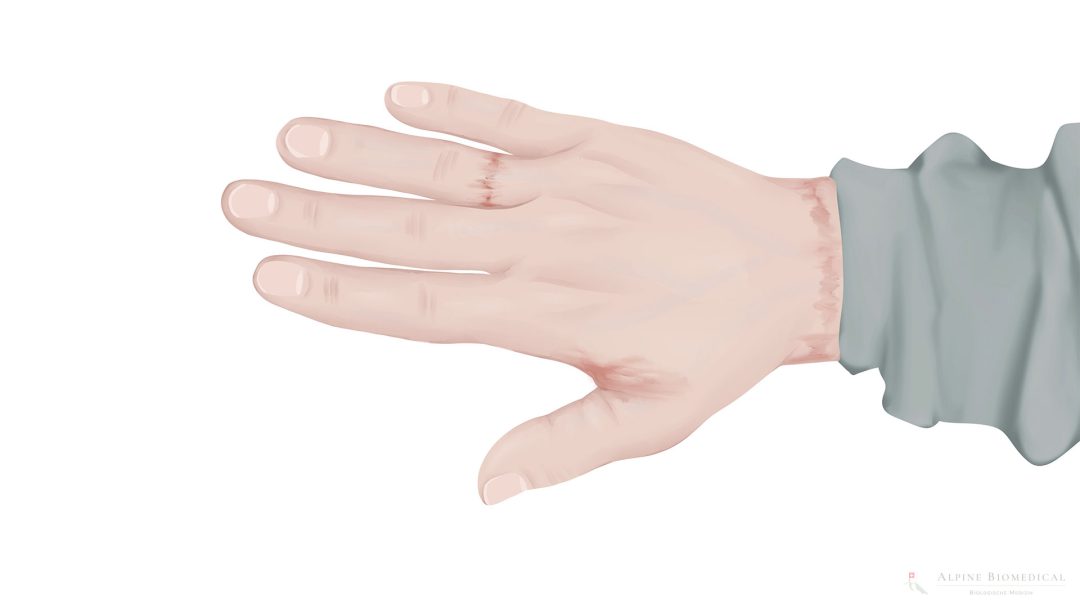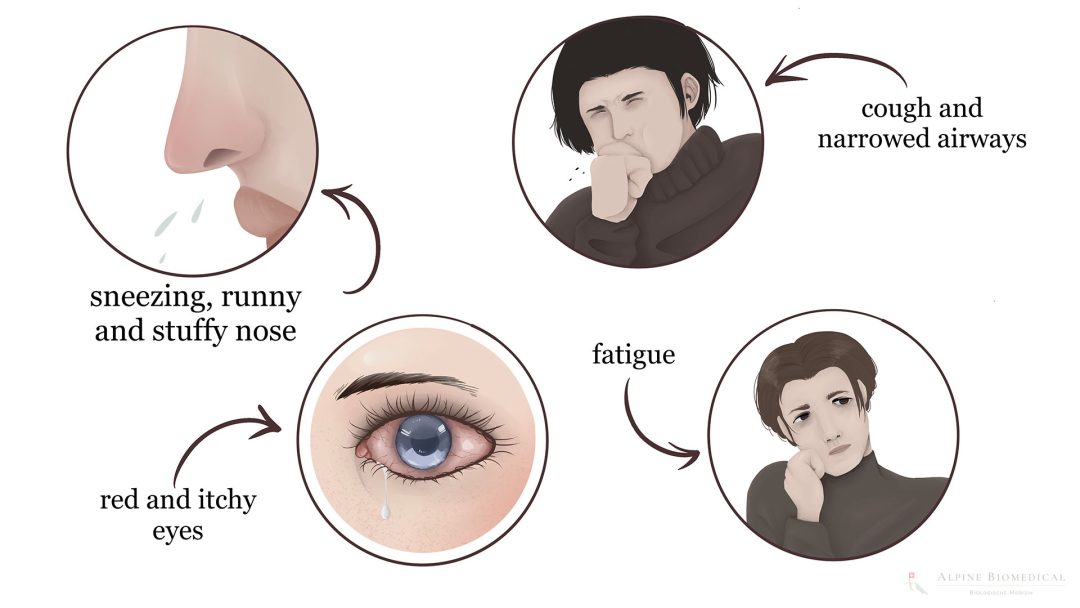Allergies
Allergies are an excessive reaction of the body’s immune system to various triggers, which are called allergens. Possible allergens include food, pollen, house dust mites, animal dander, insect venom and medication. Symptoms can range from sneezing, skin rashes and itching to serious problems such as shortness of breath or anaphylactic shock with circulatory failure.
Nickel Allergy
Nickel is added to various alloys and can cause an allergic reaction. Many people are affected by this.

House Dust Allergy
A house dust allergy is an allergic reaction of the body to the excrement of house dust mites.

Food Intolerances
In the case of food intolerance, the body reacts to certain foods with an immunological reaction.

Possible Allergies
The body can regard various substances as foreign and react to them accordingly. Some types of allergies are listed below:
- Food intolerance
- Hay fever
- House dust allergy
- Nickel allergy
- Sun allergy is an exception because it is not a classic allergy
Intolerances are also types of allergic reactions that can be mentioned here:
Diagnosis and Treatment of Allergies
Allergies are often diagnosed by skin tests and blood tests, but also by special tests to determine antibodies of the IgE group.
Avoiding allergens is the first step in therapy. Conventional medicine recommends anti-allergic medication such as antihistamines, which have a purely symptomatic effect. In severe cases, immunotherapy, also known as hyposensitization, may be considered.
If an allergy is suspected, it is crucial to first determine the underlying cause. This forms the basis for an individual, holistic medical treatment approach.
Holistic diagnostics can reveal serious disorders such as increased intestinal permeability (leaky gut) or SIBO.
Such intestinal problems can lead to systemic inflammation and immunological reactions, which increases the development of allergies.
Treatment options focus on professional intestinal cleanse, a high-fiber diet and the avoidance of allergenic foods. Anti-inflammatory nutritional supplements can also have a supportive effect.
A cause-oriented diagnosis forms the basis for an individually tailored allergy therapy. We are happy to help you.
All Blog Categories
See all blog categories below.
- Allergies
- Autoimmune Diseases
- Bone and Joint Diseases
- Cancer
- Cardiovascular Diseases
- Chronic Pain
- Dementia
- Detoxification
- Ear Diseases
- Exhaustion
- Gastrointestinal Disorders
- Immune Disorders
- Infectious Diseases
- Inflammation
- Intolerances
- Medication
- Men's Health
- Menopause
- Metabolic Disorders
- Minerals
- Neurological Diseases
- Nutritional Supplements
- Respiratory Diseases
- Skin Cancer
- Skin Diseases
- Thyroid Diseases
- Trace Elements
- Tumor
- Vitamins
- Women's Health
